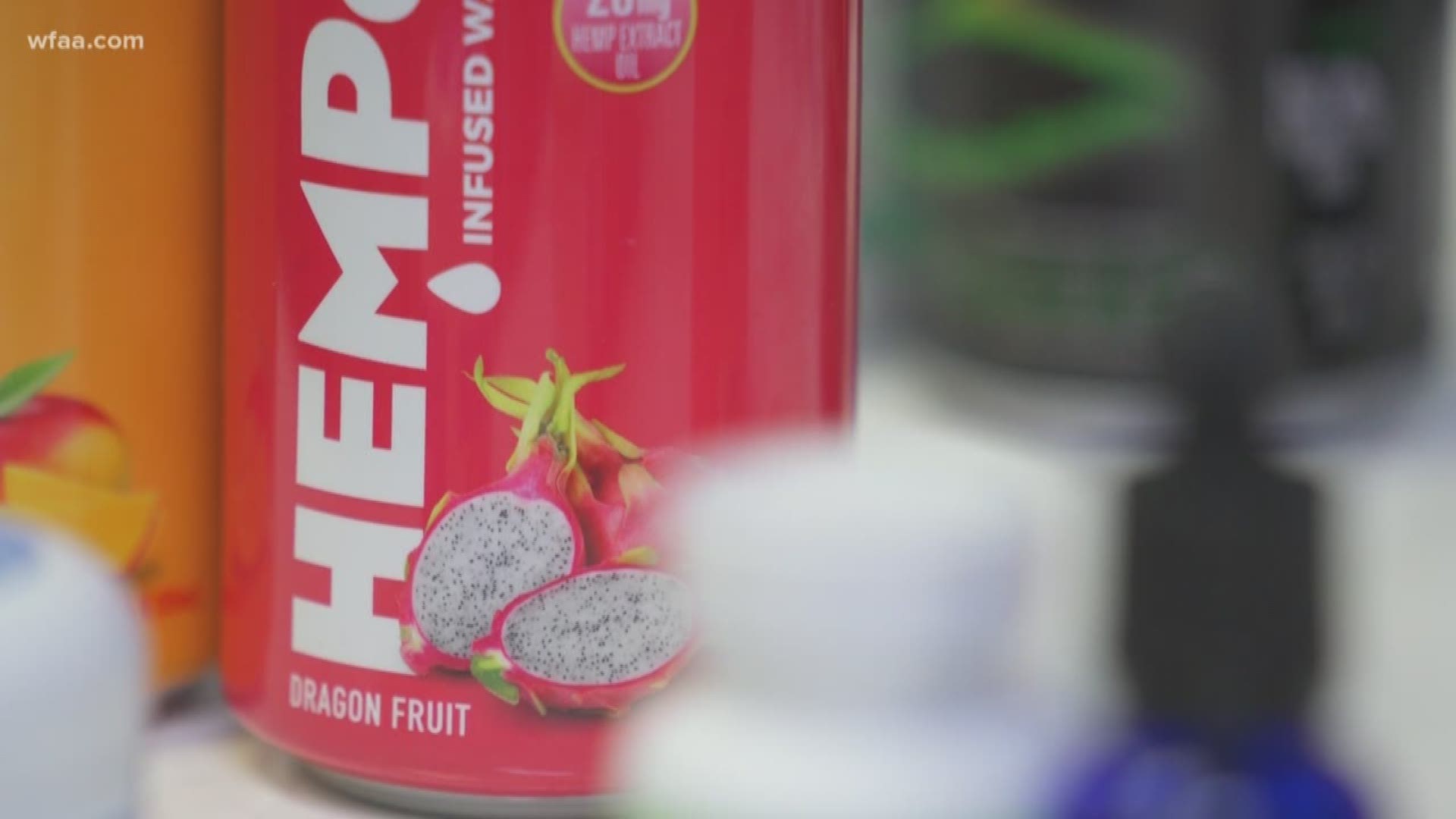COPPELL, Texas — Not far from DFW Airport is an automated production line for canned drinks that would have been illegal to operate a few years ago.
“It’s the biggest financial opportunity in the United States since the end of Prohibition,” said Michael Welch, CEO of Dallas-based Rocky Mountain High Brands.
The Coppell facility cans soft drinks with non-intoxicating hemp and CBD oil infused in them. On a recent day, it was canning for Green Lotus, a sparkling water that contains 25 milligrams of infused hemp.
“Right now, Green Lotus is massively distributed in the United States,” said Daniel Nguyen of Green Lotus Hemp. “Even Texas.”
It is legal to drink because it is hemp-based and contains no THC – the psychoactive chemical found in marijuana that makes people high.
Hemp and marijuana are cousins, Welch said, like a lemon is to a lime.
The Green Lotus Sparkling Hemp Water is lightly carbonated with a little bit of a slightly bitter bite to it. That’s the CBD oil infused in it, Nguyen said.
Four months ago, in December 2018, President Trump signed the Farm Bill which legalized hemp as a crop along with cannabidiol – or CBD oil – that is extracted from it.
But hemp hasn’t fully been unraveled out of the federal bureaucracy.
Technically, the FDA still regulates CBD oil, at least for now. But the FDA is no longer stopping companies from using CBD oil as a dietary supplement or a food additive like Welch and Nguyen are doing with it in their products. The FDA is even taking steps to let these companies legally operate under federal guidelines.
That’s why the Coppell facility is now canning so many drinks.
Welch’s Rocky Mountain High Brand, which sells exclusively online right now, markets everything from drinks and drops with hemp oil in them.
But getting those products to the customer remains tricky.
“The distribution with these is a little bit confusing right now because of the controversy with CBD. Certain companies will not distribute CBD products. Certain companies will,” Welch explained.
FedEx will no longer carry his products to customers, he added.
So, even though the feds say hemp is OK, Texas has not done the same.
“Texas is in a unique situation in that we do not have any laws that prohibit CBD or provide for CBD,” Welch continued.
Hemp is neither legal nor illegal here. It’s currently in limbo. The state has not established regulations for it.
The uncertainty in Texas around hemp products means retailers and manufacturers might be taking a chance on selling it here.
But legislatures in several dozen other states have already brought their regulations in line with federal law to allow hemp products.
In March, CVS and Walgreens both announced plans to stock hemp products in stores across multiple states — but not Texas.
“At this time, we are not selling hemp-derived CBD products at CVS stores in Texas. We are actively monitoring the regulatory landscape for CBD products, and will expand product availability as appropriate and in compliance with applicable laws,” said Erin Pensa, spokeswoman for CVS Health.
“After a thorough review and analysis, we will be offering certain products containing Cannabidiol (CBD) in nearly 1,500 Walgreens stores in select states (OR, CO, NM, KY, TN, VT, SC, IL and IN),” Walgreens said in a statement. “The CBD-related items we are planning to carry are non-THC containing topical creams, patches and sprays. This product offering is in line with our efforts to provide a wider range of accessible health and wellbeing products and services to best meet the needs and preferences of our customers.”
Texas House Bill 1325 would bring Texas in line with federal law.
If passed, it could open up a new industry in this state, representing changing attitudes about a non-intoxicating product that isn’t as intimidating as this country once thought.

